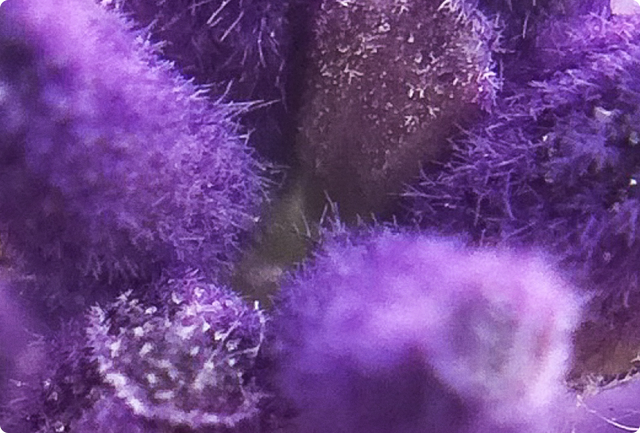About The Oil
Pressed from the fresh peel of Citrus limon, lemon essential oil delivers a crisp, tangy aroma that feels like bottled sunshine. Its clean, vibrant scent is instantly refreshing and invigorating, known to uplift the spirit and clarify the mind. Beyond its sensory appeal, lemon oil is celebrated for its purifying properties and has long been used to support both physical wellness and emotional balance.
Why You Would Use Lemon Essential Oil
-
To create a bright, energizing atmosphere and improve mood
-
For its natural cleansing and antibacterial properties
-
To help support focus, clarity, and mental alertness
-
As a gentle digestive aid
-
To refresh skin and balance oily complexions
Clinical Findings
| Study | Participants & Duration | Key Results | Reference |
|---|---|---|---|
|
Antimicrobial Activity |
Lab-based antimicrobial testing of citrus oils |
Lemon oil inhibited growth of foodborne and clinical pathogens |
Fernand es et al., 2021 |
|
Antioxidant Capacity |
Biochemical assays of citrus peel extracts |
Demonstrated high antioxidant activity due to d-limonene and other terpenes |
Fernand es et al., 2021 |
| Anti-inflammatory potential |
Cellular-level inflammatory inhibition studies |
Showed significant anti-inflammatory effects in vitro |
Fernand es et al., 2021 |
| Anti-fungal Effects |
Evaluated against Candida species |
Effective antifungal activity noted,especially against C. albicans |
Fernand es et al.,2021 |
Behind The Science
Lemon essential oil is rich in limonene, a monoterpene known for its antioxidant, anti-inflammatory, and antimicrobial actions. When inhaled, it stimulates the limbic system—our emotional processing centre—supporting a shift in mood and enhancing clarity. On a physiological level, lemon oil is also believed to influence serotonin and dopamine pathways, helping to elevate mood and sharpen attention.
Topically, lemon oil acts as a natural cleanser thanks to its antimicrobial and astringent effects. It’s frequently included in skincare and household blends to support freshness, clarity, and protection from unwanted microbes.
How and Where It Grows
Lemon trees flourish in Mediterranean and subtropical climates, with top-producing countries including Italy, Spain, and the U.S. The oil is extracted by cold-pressing the outer peel of the fruit, a method that preserves the volatile compounds in their purest form. Each drop contains the aroma of dozens of lemon rinds.
Use In Ancient Medicine
While lemon itself is a relatively modern botanical in the timeline of aromatherapy, ancient Mediterranean and Middle Eastern cultures used citrus fruits for purification rituals, medicinal tonics, and digestive support. In traditional practices, lemon has symbolized clarity, cleanliness, and the dispelling of negativity.
Symbolism
Lemon embodies freshness, optimism, and mental clarity. Its vibrant scent is often used to “cut through” emotional stagnation or fog, making it a go-to oil for motivation, renewal, and focus. It’s the aroma of new beginnings, sharp insight, and brightness of mind.
INFORMATION provided is intended for informational purposes only and is not meant to diagnose, treat, cure, or prevent any disease. Statements have not been evaluated by Health Canada or the FDA. Please consult a qualified healthcare provider before using essential oils for therapeutic purposes.
References
- Fernandes, R. V. de B., et al. (2021). Biological activity of citrus peel extracts with emphasis on lemon (Citrus limon). Journal of Essential Oil Research, 33(5), 453–462.
- Koulivand, P. H., et al. (2013). Essential Oils and Their Applications: A Review. Journal of Essential Oil Research.
- Tisserand, R., & Young, R. (2014). Essential Oil Safety (2nd ed.). Churchill Livingstone Elsevier.
- Kačániová, M., Čmiková, N., Vukovic, N. L., Verešová, A., Bianchi, A., Garzoli, S., Ben Saad, R., Ben
- Hsouna, A., Ban, Z., & Vukic, M. D. (2024). Citrus limon Essential Oil: Chemical Composition and Selected Biological Properties Focusing on the Antimicrobial (In Vitro, In Situ), Antibiofilm, Insecticidal Activity and Preservative Effect against Salmonella enterica Inoculated in Carrot. Plants,13(4), 524. https://doi.org/10.3390/plants13040524
- Carmen, M., Rambla, J. L., Pilar, M., Blázquez, M. A., & Granell, A. (2019). Volatile Compounds in Citrus Essential Oils: A Comprehensive Review. Frontiers in Plant Science, 10, 433929. https://doi.org/10.3389/fpls.2019.00012



![Shop Room Sprays [new & improved]](http://www.saje.com/cdn/shop/files/Nav-Liquid_Sunshine_Room_Spray_V02.jpg?v=1767631608&width=640)

